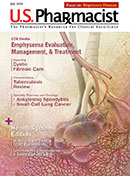Much discussion and debate have occurred during the COVID-19 pandemic about whether the bacillus Calmette-Guérin (BCG) vaccine, which stimulates innate immunity, could provide protection against SARS-CoV-2.
In fact, several studies claimed to have identified an association between BCG use and lower COVID-19 incidence and mortality.
Two recent case-control studies found no evidence that the commonly used tuberculous vaccine decreased the risk of SARS-CoV-2 infection in adulthood and the severity of COVID-19.
The first study, conducted in Quebec, Canada, involved patients with a positive SARS-CoV-2 nucleic acid amplification test performed at two hospitals between March and October 2020. Participants were born in Quebec between 1956 and 1976, and their vaccine status was accessible in a computerized registry of 4.2 million BCG vaccinations.
In this study, which was published in Vaccine, of the 920 cases and 2,123 controls recruited, 54% of cases (n = 424) and 53% of controls (n = 1,127) had received BCG during childhood (odds ratio [OR]: 1.03; 95% CI: 0.89-1.21). About 12% of cases (n = 114) and 11% of controls (n = 235) had received two or more BCG doses (OR: 1.14; 95% CI: 0.88-1.46).
After adjustment for age, sex, material deprivation, recruiting hospital, and occupation, no evidence of protection conferred by BCG against SARS-CoV-2 (adjusted OR [AOR]: 1.01; 95% CI: 0.84-1.21) was found. Among cases, 77 (8.4%) needed hospitalization and 18 (2.0%) died. Those vaccinated with BCG "were as likely as the unvaccinated to require hospitalization (AOR: 1.01, 95% CI: 0.62-1.67) or to die (AOR: 0.85, 95% CI: 0.32-2.39)," according to the researchers, who add, "BCG does not provide long-term protection against symptomatic COVID-19 or severe forms of the disease."
A study of U.S. military veterans took a slightly different approach. Researchers from the Veterans Affairs (VA) Northern California Health Care System in Martinez, California, and the School of Public Health, University of California in Berkeley, California, and colleagues, note, "In the early stages of the COVID-19 global pandemic, caused by the SARS-CoV-2 virus, low- and middle-income countries (LMICs) appeared to be experiencing lower morbidity and mortality rates than high-income countries, particularly the United States. Various suggestions put forward to account for this included the possibility that LMICs might be experiencing off-target benefits of infant vaccination with BCG, intended primarily to protect against tuberculosis."
Their report in Human Vaccines & Immune Therapeutics points out that some of the ecological epidemiological studies supporting an effect from the BCG vaccine were "primarily hypothesis-generating, given their well-known limitations in extrapolating to the individual-person level."
That's why the study team conducted what was principally a case-control study of COVID-19 infections with a retrospective cohort study of mortality nested within the infections. Anonymized VA records were used for the study.
The 263,039 controls in this study were a random sample of veterans not recorded as having had COVID-19. Those controls were compared with 167,664 COVID-19 cases, of whom 5,016 died.
The researchers used a combination of country and year of birth as a surrogate for infant BCG vaccination. "The study did not support the hypothesis that BCG in infancy was protective against COVID-19," the authors write. "The odds ratio for infection was 1.07 (95% confidence interval [CI]: 1.03, 1.11), and the risk ratio for mortality among the COVID-19 cases was 0.86 (95% CI: 0.63, 1.18). The potential for non-differential exposure misclassification was a concern, possibly biasing measures of association toward the null value."
The content contained in this article is for informational purposes only. The content is not intended to be a substitute for professional advice. Reliance on any information provided in this article is solely at your own risk.
« Click here to return to Vaccine Update.
Published November 3, 2021






